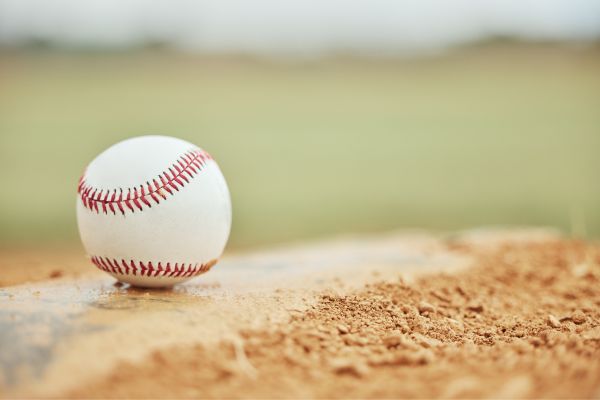The off-season is one of the most crucial times in a baseball player’s year. While the regular season demands focus on performance and competition, the months away from the diamond offer a unique opportunity to rebuild, recover, and refine. A well-structured baseball off-season training plan not only helps players stay in peak physical condition but also sets the stage for improved performance when the season resumes.
The Importance of Off-Season Training for Baseball Players
For many athletes, the off-season might sound like a chance to completely step away from the game. While rest and recovery are certainly important, a purposeful training program during this period is essential for long-term success. Baseball off-season training allows players to correct physical imbalances, enhance strength, and sharpen their mental edge.
During the competitive season, constant games and practices can lead to overuse injuries, fatigue, and performance plateaus. The off-season is the ideal time to reset the body and mind, focusing on areas that are often neglected when the schedule is full. This includes strength and conditioning, flexibility, mobility, and even fine-tuning technical skills in a controlled environment.
Building Strength and Power in the Off-Season
Strength training is a cornerstone of any effective baseball off-season training program. Baseball is a sport that relies heavily on explosive power, whether it’s a batter swinging for the fences or a pitcher delivering a fastball. The off-season is the perfect time to develop a solid foundation of strength that can be translated into on-field performance.
Players should focus on compound movements that engage multiple muscle groups. Exercises such as squats, deadlifts, bench presses, and pull-ups help build overall strength. As the program progresses, incorporating plyometric exercises and medicine ball drills enhances explosive power. These dynamic movements simulate the rotational forces and quick bursts required in baseball, helping athletes transfer their gym gains directly onto the field.
Enhancing Speed, Agility, and Endurance
While strength provides the foundation, speed and agility are equally important for baseball players. Quick first steps, rapid directional changes, and base running speed can make a huge difference in competitive play. Off-season training programs should include sprint work, ladder drills, and agility cone exercises designed to improve footwork and reaction time.
In addition, aerobic conditioning helps maintain overall endurance. Though baseball is often considered a sport of short, intense bursts, cardiovascular fitness supports recovery between plays and games. Interval training, hill sprints, and moderate-distance running can be integrated into the off-season plan to build stamina without sacrificing explosiveness.
Skill Development and Technique Refinement
The off-season isn’t just about physical conditioning—it’s also an opportunity to refine technical skills. With less pressure from games, players can focus on improving batting mechanics, throwing accuracy, and fielding techniques. Working with coaches or using video analysis can provide valuable feedback and help correct bad habits that may have developed during the season.
Pitchers, in particular, can benefit from this period by addressing their mechanics and increasing shoulder stability. A well-structured throwing program that gradually builds up intensity ensures they are ready to handle the demands of the upcoming season without risking injury.
Recovery and Injury Prevention
One of the most overlooked aspects of baseball off-season training is recovery. After months of intense competition, the body needs time to heal and recharge. Incorporating mobility work, stretching routines, and yoga helps improve flexibility and joint health. Soft tissue work like foam rolling or massage can also aid in muscle recovery and prevent tightness that leads to injuries.
Additionally, addressing imbalances or weaknesses with corrective exercises can reduce the likelihood of overuse injuries. A focus on shoulder stability, hip mobility, and core strength ensures the athlete’s body is prepared for the repetitive motions of the season ahead.
Nutrition and Mental Preparation
A complete off-season program isn’t just about physical work; nutrition and mental preparation play vital roles too. Eating a balanced diet rich in protein, complex carbohydrates, healthy fats, and micronutrients supports muscle repair and energy levels during training. Staying hydrated and getting sufficient sleep also contribute to optimal recovery and performance.
Mentally, the off-season can be a chance to reset goals and strengthen focus. Visualization techniques, mindfulness practices, and working with a sports psychologist can help athletes build resilience and confidence for the challenges of the next season.
Transitioning Back to Pre-Season
As the off-season comes to an end, players should transition their training to mimic the demands of the game more closely. This includes sport-specific drills, simulated game situations, and increased throwing intensity. Gradually shifting from heavy strength work to more dynamic, baseball-focused movements ensures the body is ready to perform at its peak.
This transitional phase is critical to avoid injuries that can occur from jumping too quickly into full-speed practices and games. A well-planned baseball off-season training program will seamlessly lead players back into pre-season form, fully prepared for the rigors of competition.
Conclusion: Maximize Your Off-Season for Peak Performance
The off-season is not a time to take a complete break from baseball—it’s an opportunity to gain an edge over the competition. A comprehensive baseball off-season training plan that incorporates strength, speed, skill work, recovery, and mental preparation sets the foundation for a successful season. By investing time and effort during these crucial months, players can return to the field stronger, faster, and more confident than ever before.
Whether you’re a seasoned professional or an aspiring young athlete, the off-season offers the chance to transform your game. Commit to your training, stay consistent, and watch as your hard work pays off when it matters most.
